
Biography
Hong San See Temple, Singapore
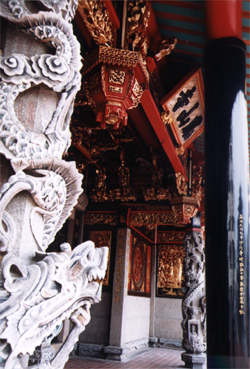 Hong San See Temple, Singapore, used to be the focal point for immigrants from Nan Ann Town in Fukien Province, China. The present temple, built between 1908 and 1912, replaced an earlier one in Tanjong Pagar. One of the most admirable features of the temple is the exquisite woodcarving.
Hong San See Temple, Singapore, used to be the focal point for immigrants from Nan Ann Town in Fukien Province, China. The present temple, built between 1908 and 1912, replaced an earlier one in Tanjong Pagar. One of the most admirable features of the temple is the exquisite woodcarving.
UBS AG
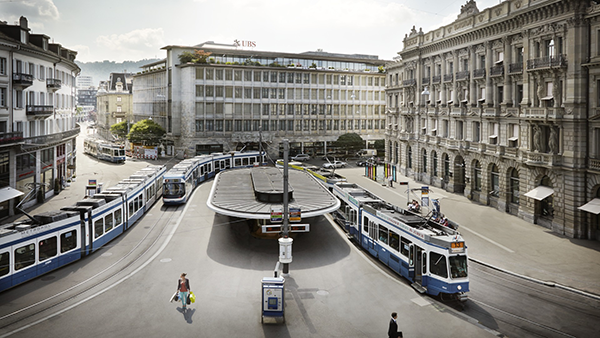 UBS AG is a major player in private banking, asset and risk management, corporate and institutional finance, financial trading and financial product sales worldwide. The transformation of UBS into a truly global bank has been driven by the need to develop a more diversified source of income in the face of increased competition in both home and foreign markets. Even though, expansion has mainly been confined to its foreign operations, UBS continues to enjoy the largest market share of the Swiss retail banking sector.
UBS AG is a major player in private banking, asset and risk management, corporate and institutional finance, financial trading and financial product sales worldwide. The transformation of UBS into a truly global bank has been driven by the need to develop a more diversified source of income in the face of increased competition in both home and foreign markets. Even though, expansion has mainly been confined to its foreign operations, UBS continues to enjoy the largest market share of the Swiss retail banking sector.
On June 29, 1998, Union Bank of Switzerland merged with the Swiss Bank Corporation (SBC), Switzerland's third largest banking group, to form the UBS AG, a global financial institution which, at the time, was the second largest of its kind in the world behind the Bank of Tokyo-Mitsubishi Group.
I am or have been associated with the former Union Bank of Switzerland and the current UBS AG as a member of staff. From 1985 to 1988, I was employed as a banker-in-training under a 3-year program sponsored jointly by the Federal Government and the employer. For 3 months in 1993, I substituted for a bank officer on vacation. Further details of my relationship with UBS can be obtained from my professional profile.
Purdue University
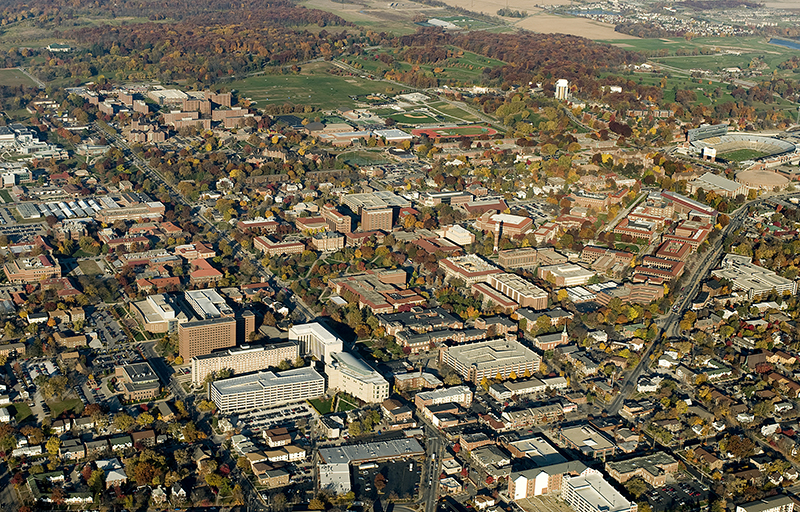 Purdue University is a powerhouse of intellectual capital, where curiosity meets ingenuity to propel human advancement. As a preeminent public research institution, Purdue has consistently redefined the boundaries of knowledge, inspiring generations of leaders and innovators.
Purdue University is a powerhouse of intellectual capital, where curiosity meets ingenuity to propel human advancement. As a preeminent public research institution, Purdue has consistently redefined the boundaries of knowledge, inspiring generations of leaders and innovators.
Founded in 1869, after the United States provided federal lands and after Lafayette businessman John Purdue also donated land and money to establish a college of science, technology and agriculture, Purdue University is today renowned for its unparalleled academic rigor and experiential learning, cultivating a dynamic campus environment that fosters creativity and critical thinking. With a rich tapestry of disciplines, from engineering and technology to agriculture and humanities, the university offers an exceptional breadth and depth of educational opportunities.
Purdue's commitment to research excellence is evident in its transformative discoveries and groundbreaking inventions. From pioneering advancements in artificial intelligence and aerospace engineering to revolutionizing healthcare and agriculture, the university's impact is felt worldwide. As a catalyst for economic growth and societal progress, Purdue partners with industry, government, and communities to address complex global challenges.
Beyond the classroom, Purdue students thrive in a vibrant campus culture that embraces diversity, inclusion, and service. All 50 states and 130 countries are represented. Equipped with the knowledge, skills, and values necessary to succeed in an interconnected world, Purdue graduates emerge as confident, ethical leaders poised to shape the future.
The London School of Economics and Political Science (LSE)
The founding of the London School of Economics and Political Science (informally LSE) marked the conjunction of a need with an opportunity. The need was for a center where political and social problems could be studied as profoundly as they were being studied in universities on the Continent and in America. The opportunity came when Henry Hunt Hutchinson, a member of the Fabian Society, died in 1894 leaving instructions to Sidney Webb and four other trustees to dispose of the residue of his estate for socially progressive purposes, but otherwise more or less as they thought fit. Sidney Webb working without the formalities of charters and incorporations, of public subscriptions and government grants, boards of trustees and governors, collected subscriptions and started the School. Its aim was to contribute to the improvement of society by promoting the impartial study of its problems and the training of those who were to make and translate policy into action.
Once the University of London had reorganized itself in 1900 and established a Faculty of Economics and Political Science, the School joined the University. Since the formality of its new position required the School to regularise its constitution, it was incorporated as a limted company not trading for profit, on 18 June 1901, with Sidney Webb as Chairman of the Governors. Sidney Webb may have hoped that the study of society and social problems would lead to social, economic and political developments congenial to him and other Fabians; but he firmly established the principle that the School was not to be the servant of any political or economic dogma, but only of the impartial pursuit of knowledge and understanding. This was emphasized in the adoption by the School in February 1922 of the motto from Virgil (Felix qui potuit) rerum cognoscere causas (to know the causes of things), and of the coat of arms depicting books, for learning, and the beaver, as an industrious animal with social habits.
Much of the development of the social sciences in the United Kingdom and abroad has its origins in work done at the School. As the list of subjects in the original Articles of Association suggests, the School's work has concerned the social sciences in the widest senses of that term, both theoretical and empirical, quantitative and humanistic. In 1904, the first lectureship in sociology was estabilished in the Kingdom, followed by the establishment of the Department of Social Science and Administration in 1912. Anthropology as it is currently practised owes much to the pioneering work of Malinowski and other LSE anthropologists. In 1924, one of the first Chairs in International Relations was established at the School, and, in 1934, the first organized study of Criminology began at the School. Economics has been practiced since very beginning. Among the many distinguished economists that have been members of the School may be mentioned Allen, Gorman, Hahn, Johnson, Kaldor, Lerner, Phillips, Robbins, Sen, Hicks, Lewis, Meade, von Hayek and Coase, Miller and Mundell, the latter seven having received the Nobel Prize in Economics. The political scientists and philosphers Webb, Wallas, Laski, Schapiro, Oakeshott, Kedourie, Cranston, Robson, Popper, Self and Minogue, the anthropologists Malinowski, Firth, Mair and Schneider, the social psychologist Himmelweit and the economic and international historians and relationists Power, Tawney, Webster, Medlicott, Goodwin and Northedge are only a few of the many other well-known former and current members of staff.
The School has continued this tradition of research excellence, in all 18 academic departments, in the five interdisciplinary institutes and in an increasing number of endowed and externally-financed research centres. This research informs and constantly reinvigorates the School's teaching. Graduate students work with teachers who are among the top in their fields. In turn, graduate students play a valued and important role in the School's scholarship through the research they conduct during their studies.
The School occupies a compact site in central London, next to the Royal Courts of Justice and near the Inns of Courts, the City and Westminster. One observer's view is that, as a result of piecemeal development over the years, the buildings bear the marks of growth by accident and accretion, connected by bridges and different levels, full of corridors that end abruptly, connections that no rational man could expect. A major expansion became possible in 1978, when the School's library of 3 million books, the largest specialist social science collection in the world, was relocated to a building whose refurbishment was funded by the Rockefeller Foundation, giving the School 60 percent more space in one move. In 2000, the library underwent a major redevelopment, designed by world-renouned architects Foster & Partners and whose major feature is a walk way spiraling up four floors, caped by a large glass dome. The School is continuing to look to purchase adjacent sites.
I have been in residence at the School on two occasions. In the 1993/4 academic year, I was a visiting undergraduate student in its Department of Economics. In the 1996/7 academic year, I returned as a post-graduate student for a Master of Science course in the subject area Political Economy of Transition. Since November 1997, I am an alumnus of the School and, since October 1998, the Secretary General of the Swiss LSE Alumni Association (SLSEAA), the large independent national membership association of LSE alumnae and alumni in Switzerland.
The University of London is a confederation of London-based colleges, institutes, hospitals and research laboratories. Each member institution governs itself and owns its own property but submits its students for examination to the University. Apart from its responsibility for examinations and the granting of academic degrees, it maintains several important common assets: the University Library, the Marine Biological Station in Scotland together with several research vessels, the University Observatory, the Computer Centre and student residences and recreational facilities at prime locations throughout London.
Besides the London School of Economics and Political Science, the University has some other very illustrious member institutions: the King's College (natural sciences, war studies), the University College (archeology, natural sciences), the Goldsmiths College (new media), the Royal Holloway and Bedford New College, the Queen Mary and Westfield College, the London Business School (LBS), the Birkbeck College, the Courtauld Institute (art history), SOAS (oriental and asian studies), the Heythrop College (theology). Guy's, St. Thomas', Charing Cross and Westminster, St. Bartholomew's, St. George's, Middlesex, St. Mary's and the Royal Free medical colleges and hospitals, the London School of Hygiene and Tropical Medicine, the School of Pharmacy and the Royal Veterinary College make the University the worldwide leader in human and animal medical research. Lastly, the School of Advanced Studies, a special research think tank of the University, attracts researchers from many corners of the globe to work on complex and interdisciplinary scientific questions.
From 1993 to 1994 and again from 1996 to 1997, I was a junior member (Internal Student) of the University. Since 1997, I'm a graduate member of the University.
Golf Club Lindau-Bad Schachen
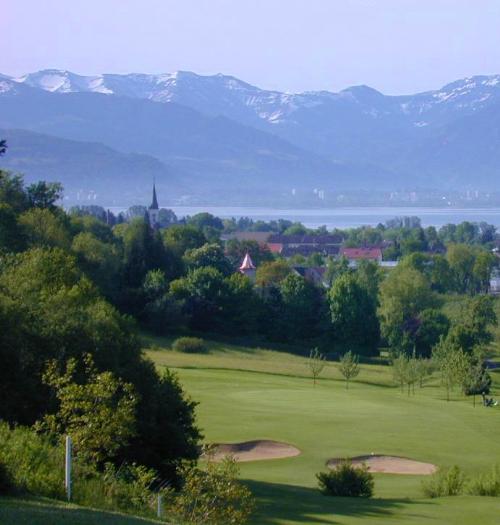 My home club, the Golf Club Lindau-Bad Schachen, established in 1954, is nestled in a beautiful spot overlooking Lake Constance. It is rated as one of the "Top 10" golf courses in Germany and continues to play host to the International Mixed Foursome Championship. It draws its membership from the border regions between Switzerland, Austria and Germany. The picture shows the view from the tee box down to the green of hole 1, overlooking the Lake and the Eastern Swiss alpine massive as a backdrop.
My home club, the Golf Club Lindau-Bad Schachen, established in 1954, is nestled in a beautiful spot overlooking Lake Constance. It is rated as one of the "Top 10" golf courses in Germany and continues to play host to the International Mixed Foursome Championship. It draws its membership from the border regions between Switzerland, Austria and Germany. The picture shows the view from the tee box down to the green of hole 1, overlooking the Lake and the Eastern Swiss alpine massive as a backdrop.
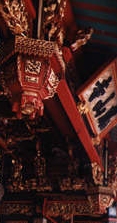 My life at the crossroads of cultures started on 31st of May 1968 as the only son of a Singaporean mother and a Swiss father. In 1975, the family emigrated to Australia in search for a better life. Our small apartment in a northern suburb of Sydney was not far from the ocean, and I could be found daily playing at the beach after school.
My life at the crossroads of cultures started on 31st of May 1968 as the only son of a Singaporean mother and a Swiss father. In 1975, the family emigrated to Australia in search for a better life. Our small apartment in a northern suburb of Sydney was not far from the ocean, and I could be found daily playing at the beach after school.
Subsequently, however, we moved back to Switzerland were father started his distinguished career in banking. In 1985, after graduating from the Rhine Valley Secondary School, I embarked on my own career in commercial and investment banking: 3 years with the Union Bank of Switzerland (UBS) followed by 2 years with the Zurich subsidiary of Okasan Securities, a Japanese stock brokerage house. At Okasan, I eventually ended up heading the trading assistant group.
In 1990, I left the banking world to fulfill my long-held desire to make a personal voyage to the New World. I set foot on American soil for the first time on 4th of August 1990 after a two week-long Atlantic passage on a cargo ship. I crisscrossed America for many weeks by plane and train and subsequently ended up in California.
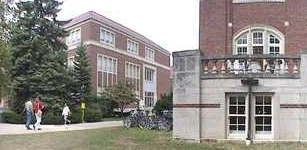 There, I somehow stumbled into the world of science. I am grateful that I took the chance and the risk of embarking, first at the University of California then at Purdue University, on an academic career. Since then I have enjoyed a fulfilled life and, hopefully, I am able to continue to engage in analyses and research.
There, I somehow stumbled into the world of science. I am grateful that I took the chance and the risk of embarking, first at the University of California then at Purdue University, on an academic career. Since then I have enjoyed a fulfilled life and, hopefully, I am able to continue to engage in analyses and research.
I graduated from Purdue in 1996 with an honors degree in economics (BSc Econ.). During a visiting year at the London School of Economics (LSE) in 1993-4, I not only developed a close affinity with the School but also a keen interest in transformation economics. This I have continued to pursue at that exceptional institution of higher learning. The University of London, of which the School is a constituent college, elected me to a Master of Science (MSc) in November 1997.
One of the seldom enough chances in life brought me indeed to one of the countries I studied at university. For most of 1999, I had the privilege to be a resident advisor to the Ministry of Finance, Government of the Republic of Poland. My work in Warsaw, were I took a small flat, focused mainly on higher education funding issues. At the end of my contract and after nearly 10 years abroad, I moved permanently back to Switzerland to take up a position with the Government of the Swiss Confederation. I was employed as Desk Officer for several multilateral financial institutions and attached to the new State Secretariat for Economic Affairs. I left the Swiss Government, however, after only a short interlude. At the time, father was restructuring his company, now named Bigger & Partner. Immediatetly after leaving public office, I responded to his request for help, drafting the new business plan and developing electronic commerce solutions. My father developed cancer, which was discovered at a very late stage. My father died in 2002. I still have to this day episodes during which I feel very sad because of his death. The family business was eventually wound up, and I joined Swisscanto Group, a Swiss financial services group with over CHF 50 billion under management. I had a good 10-year run with Swisscanto, eventually taking responsibilities as the Risk Officer. I left for a longer career break, doing paleontological research in Africa, the cradle of humanity. Learn more about my field studies in Africa in the Science section. Upon my return to Switzerland, I started a new venture, a fusion of a social enterprise with a for-profit service provider. My entrepreneurship has been much informed by my professional background in the asset management industry and my recent extended sabbatical in Africa.